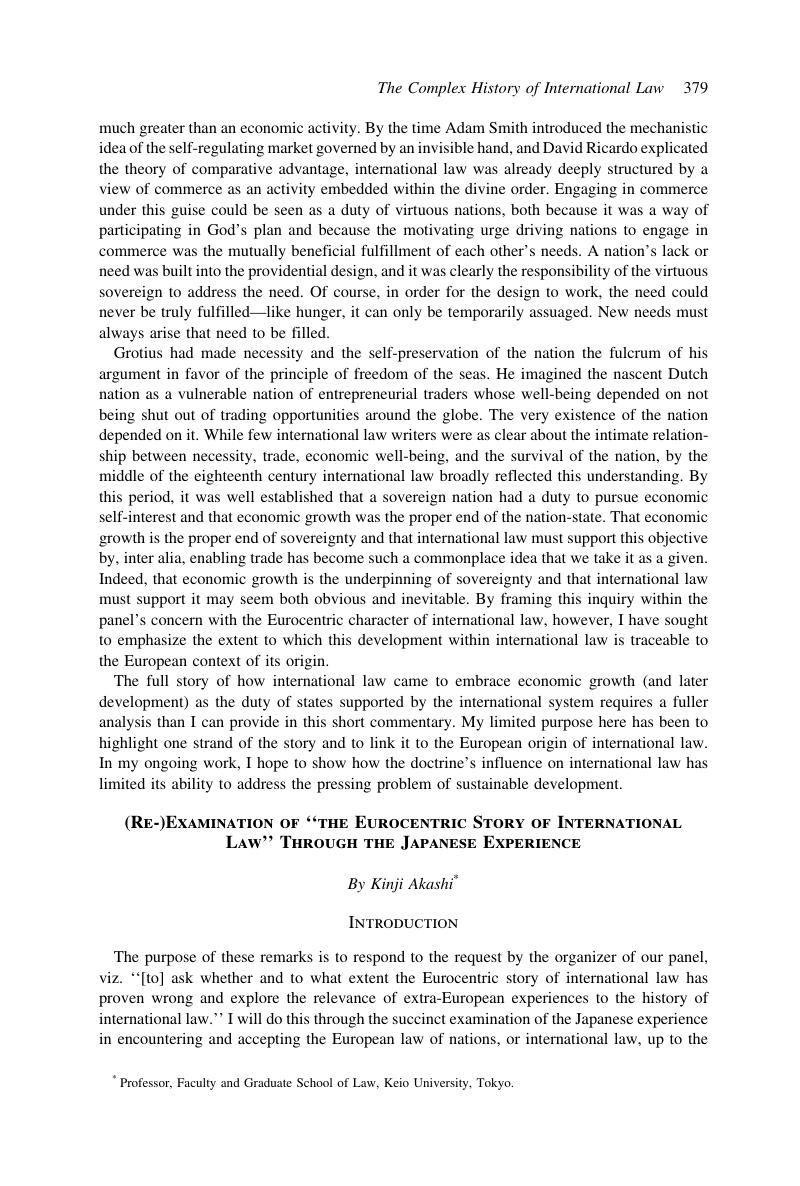No CrossRef data available.
Article contents
(Re-)Examination of “The Eurocentric Story of International Law” Through the Japanese Experience
Published online by Cambridge University Press: 20 January 2017
Abstract

- Type
- The Complex History of International Law
- Information
- Copyright
- Copyright © American Society of International Law 2014
References
1 Book of Han (Hanshu) (the official records of the former Han Dynasty, edited in the first century A.D.).
2 It is highly probable that these three points are, to a certain extent, applicable to all regions dominated or colonized by the European powers. On the extra-European experiences regarding international law, see the relevant chapters in The Oxford Handbook of the History of International Law (Bardo Fassbender & Anne Peters eds., 2012).
3 This fact suggests that the notion of “multipolarity,” implied in the current criticism of Euro-centrism, would not be appropriate to the analyses and discussions which have some concern with the present status of international law.
4 But this is not a particular issue of international law, since any law requires interpretation. The only difference between international law and municipal law in this respect is that the latter normally has a system that holds authority to decide which interpretation is correct and to enforce the decision, while the former does not.


